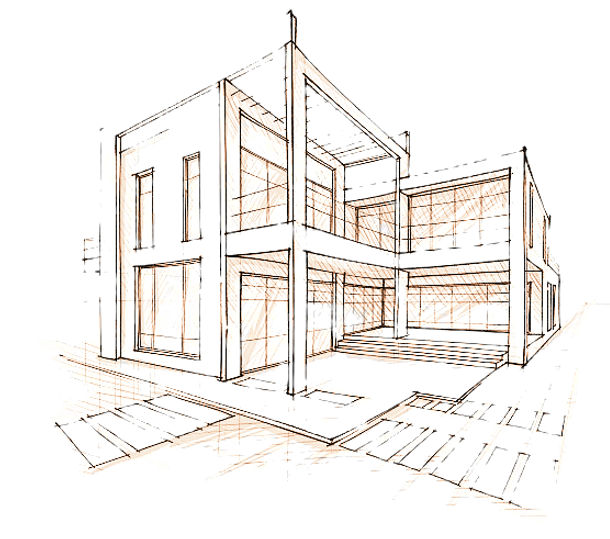

.png)
Buildings viewed up close by VG Expert
Your partners in construction expertise
Assistance VO in private and communal & Expertise construction errors and damage, also problems with contractors and architects, misleading sale of a home, technical advisor in legal proceedings, etc.
Please call or email us - 0472 59 18 98

Assistance VO in private and communal & Expertise construction errors and damage, also problems with contractors and architects, misleading sale of a home, technical advisor in legal proceedings, etc.
Please call or email us - 0472 59 18 98
En lees wat anderen zeggen over mijn aanpak en expertise.
Judicial expertise
what is a judicial expertise?
A judicial expertise is initiated, as the word says, before the court. The reason can be of various kinds, structural defects (moisture, cracks, finishing problems, ...), dispute about damage, client stops paying, contractor no longer comes to work, etc ... A dispute arises.
In the first instance, the parties will try to reach a solution among themselves. If that is not possible, one of the parties will contact a lawyer and go to court. The judge, who has legal training, will be advised by an external expert (architect, engineer, surveyor, ...) who will visit the site to examine the situation and prepare a report, which will be sent to the court.
legal framework.
The 'rules of the game' for a judicial expertise are laid down in the Judicial Code, articles 962 to 991. The expert must of course strictly follow these rules.
how does a judicial expertise work?
1. order of the court.
The judge determines the expert's assignment. Usually the assignment contains the following elements: making determinations, trying to reconcile the parties, determining liability, advising method of repair, estimating damage, drawing up a settlement between the parties.
2. kick-off meeting.
The expert notifies the parties of his appointment by registered letter and determines the date of the kick-off meeting or 'installation meeting' at which the first site visit will take place. The purpose of this visit is to make findings, to receive documents and to hear the parties defend their positions. The parties' lawyers are present at the installation meeting.
3. research.
Sometimes damage is identified (eg cracks, damp spots, subsidence) and it is not clear what the cause is. The expert will conduct additional on-site investigations, possibly assisted by specialists, to determine the cause.
Important is the contradiction of the research. The expert must ensure that all parties are invited to all expertise activities, and are given the opportunity to attend the site visits. All documents relating to the expertise must also be submitted to all parties at all times.
4. preliminary report.
Depending on the willingness of the parties to reach a settlement, the expert will formulate a conciliation proposal or prepare an extensive preliminary report. In the preliminary report, the expert determines his position on cause and responsibility and makes a proposal for settlement between the parties.
5. amicable settlement or comments on the preliminary report.
The parties examine the settlement proposal and agree or disagree. In the event of no agreement, all concerned will be given the opportunity to comment on the preliminary report, putting forward arguments to defend their position.
6. final report.
The expert examines the parties' comments and responds to the comments. If the comments are justified, this may give rise to a revision or adjustment of the expert's view with regard to cause, responsibility, damage or settlement. The expert will process the parties' comments in a final report in which his final positions are set out. The final report is sent to the court and to the parties. At that time, the expert's judicial assignment has ended, which does not alter the fact that the case can then drag on for quite some time before a final judgment is pronounced by the court.
The costs of a judicial expertise.
The costs of a procedure are far-reaching Earth, court fee, summons costs, expertise costs, lawyer. The costs of the court expert are advanced (provisioned) by the party designated for this purpose in the judgment. Various commissions may be requested during the course of the investigation.
At the end of the investigation, a summary statement of costs and fees is included in the final report. The costs will be charged by the court to the unsuccessful party or divided between the parties according to each party's liability.
A good advice ...
Let us advise you! In a lawsuit with expert investigation, the costs can be very high and the verdict can also have serious financial consequences. Consult a lawyer in good time who will assist you in the legal proceedings.
You can also appoint a 'technical advisor'. This is an expert appointed by you to assist you on a technical level and to defend your interests.Construction experts can be of service to you and is well placed for this because of the many years of experience that has been built up in judicial and private expertise. Since you appoint the consulting expert yourself, you will also have to pay his costs. In certain BA or legal assistance insurance formulas, the insurer intervenes in the costs of the technical adviser.
_edited_edited.png)
.png)






.png)


.png)